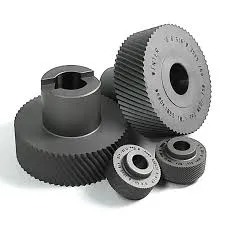
-
 Afrikaans
Afrikaans -
 Albanian
Albanian -
 Amharic
Amharic -
 Arabic
Arabic -
 Armenian
Armenian -
 Azerbaijani
Azerbaijani -
 Basque
Basque -
 Belarusian
Belarusian -
 Bengali
Bengali -
 Bosnian
Bosnian -
 Bulgarian
Bulgarian -
 Catalan
Catalan -
 Cebuano
Cebuano -
 Corsican
Corsican -
 Croatian
Croatian -
 Czech
Czech -
 Danish
Danish -
 Dutch
Dutch -
 English
English -
 Esperanto
Esperanto -
 Estonian
Estonian -
 Finnish
Finnish -
 French
French -
 Frisian
Frisian -
 Galician
Galician -
 Georgian
Georgian -
 German
German -
 Greek
Greek -
 Gujarati
Gujarati -
 Haitian Creole
Haitian Creole -
 hausa
hausa -
 hawaiian
hawaiian -
 Hebrew
Hebrew -
 Hindi
Hindi -
 Miao
Miao -
 Hungarian
Hungarian -
 Icelandic
Icelandic -
 igbo
igbo -
 Indonesian
Indonesian -
 irish
irish -
 Italian
Italian -
 Japanese
Japanese -
 Javanese
Javanese -
 Kannada
Kannada -
 kazakh
kazakh -
 Khmer
Khmer -
 Rwandese
Rwandese -
 Korean
Korean -
 Kurdish
Kurdish -
 Kyrgyz
Kyrgyz -
 Lao
Lao -
 Latin
Latin -
 Latvian
Latvian -
 Lithuanian
Lithuanian -
 Luxembourgish
Luxembourgish -
 Macedonian
Macedonian -
 Malgashi
Malgashi -
 Malay
Malay -
 Malayalam
Malayalam -
 Maltese
Maltese -
 Maori
Maori -
 Marathi
Marathi -
 Mongolian
Mongolian -
 Myanmar
Myanmar -
 Nepali
Nepali -
 Norwegian
Norwegian -
 Norwegian
Norwegian -
 Occitan
Occitan -
 Pashto
Pashto -
 Persian
Persian -
 Polish
Polish -
 Portuguese
Portuguese -
 Punjabi
Punjabi -
 Romanian
Romanian -
 Russian
Russian -
 Samoan
Samoan -
 Scottish Gaelic
Scottish Gaelic -
 Serbian
Serbian -
 Sesotho
Sesotho -
 Shona
Shona -
 Sindhi
Sindhi -
 Sinhala
Sinhala -
 Slovak
Slovak -
 Slovenian
Slovenian -
 Somali
Somali -
 Spanish
Spanish -
 Sundanese
Sundanese -
 Swahili
Swahili -
 Swedish
Swedish -
 Tagalog
Tagalog -
 Tajik
Tajik -
 Tamil
Tamil -
 Tatar
Tatar -
 Telugu
Telugu -
 Thai
Thai -
 Turkish
Turkish -
 Turkmen
Turkmen -
 Ukrainian
Ukrainian -
 Urdu
Urdu -
 Uighur
Uighur -
 Uzbek
Uzbek -
 Vietnamese
Vietnamese -
 Welsh
Welsh -
 Bantu
Bantu -
 Yiddish
Yiddish -
 Yoruba
Yoruba -
 Zulu
Zulu
CE Certification Process for Reed Thread Roller and Its Importance in Manufacturing Standards
Understanding CE Certification for Reed Thread Rollers
In the world of manufacturing and industrial processes, ensuring the safety and quality of machinery is of paramount importance. One crucial aspect of this is obtaining the appropriate certifications that affirm compliance with safety standards. CE certification is one such mark that indicates products meet the requirements outlined in European Union (EU) directives. This article focuses on the significance of CE certification for reed thread rollers and its implications for manufacturers and users alike.
What Are Reed Thread Rollers?
Reed thread rollers are specialized machines used in the production of threaded components by rolling materials into desired shapes. This is a cold forming process that enhances the mechanical properties of the material while reducing waste. Reed thread rolling machines are essential in various industries, including automotive, aerospace, and general manufacturing, where precision and efficiency are critical.
The Importance of CE Certification
CE certification stands for Conformité Européenne and is required for products sold in the European Economic Area (EEA). This certification process assures that the product conforms to the essential health, safety, and environmental protection standards laid out by EU directives. For manufacturers of reed thread rollers, obtaining CE certification is not just a regulatory requirement but also a crucial step towards gaining market access and building trust with customers.
1. Market Access Without CE certification, it is illegal to sell products in EU member states. This certification is crucial for manufacturers who want to penetrate the European market. It allows them to showcase that their machines adhere to regulatory standards, enabling them to compete effectively.
2. Safety Assurance Reed thread rollers operate under high pressures and speeds, which can pose significant risks if not adequately designed and manufactured. CE certification involves rigorous testing and evaluation to ensure that machines are safe for use, minimizing the risk of accidents in the workplace. This ultimately protects both operators and the organization from potential liabilities.
3. Quality Improvement The process of obtaining CE certification pushes manufacturers to improve their product quality and compliance with best practices. This leads to the development of more reliable and efficient machines. For the end users, this means fewer breakdowns and increased productivity.
4. Environmental Compliance CE certification also addresses environmental considerations, which are increasingly important in today's industrial landscape. Manufacturers must demonstrate that their reed thread rollers are not only safe for users but also environmentally friendly. This commitment to sustainability can enhance the manufacturer’s reputation and appeal in a market that values eco-friendly practices.
ce certification reed thread roller

5. Trust and Credibility For businesses looking to purchase reed thread rollers, CE certification serves as a mark of credibility. It assures buyers that the equipment they are investing in has undergone thorough scrutiny and meets high standards. This sense of reliability can influence purchasing decisions, driving sales for certified manufacturers.
The Certification Process
The process of obtaining CE certification typically involves several steps
1. Product Assessment Manufacturers must evaluate their machines against relevant EU directives to identify which specific requirements apply to their products.
2. Technical Documentation Detailed documentation must be prepared to demonstrate compliance with these directives. This includes design, manufacturing processes, and test results.
3. Conformity Assessment Depending on the product's complexity and associated risks, a notified body may need to conduct a conformity assessment to verify compliance.
4. CE Marking Once the process is successfully completed, the manufacturer can affix the CE mark to their product, signaling compliance to customers and regulatory authorities.
Conclusion
CE certification for reed thread rollers is not merely a regulatory formality but a vital component of responsible manufacturing and market access in Europe. It enhances safety, boosts quality, and fosters trust among consumers. For manufacturers, it represents a commitment to excellence and continuous improvement, ensuring their products can compete effectively in a global market, ultimately benefiting both producers and users alike.
